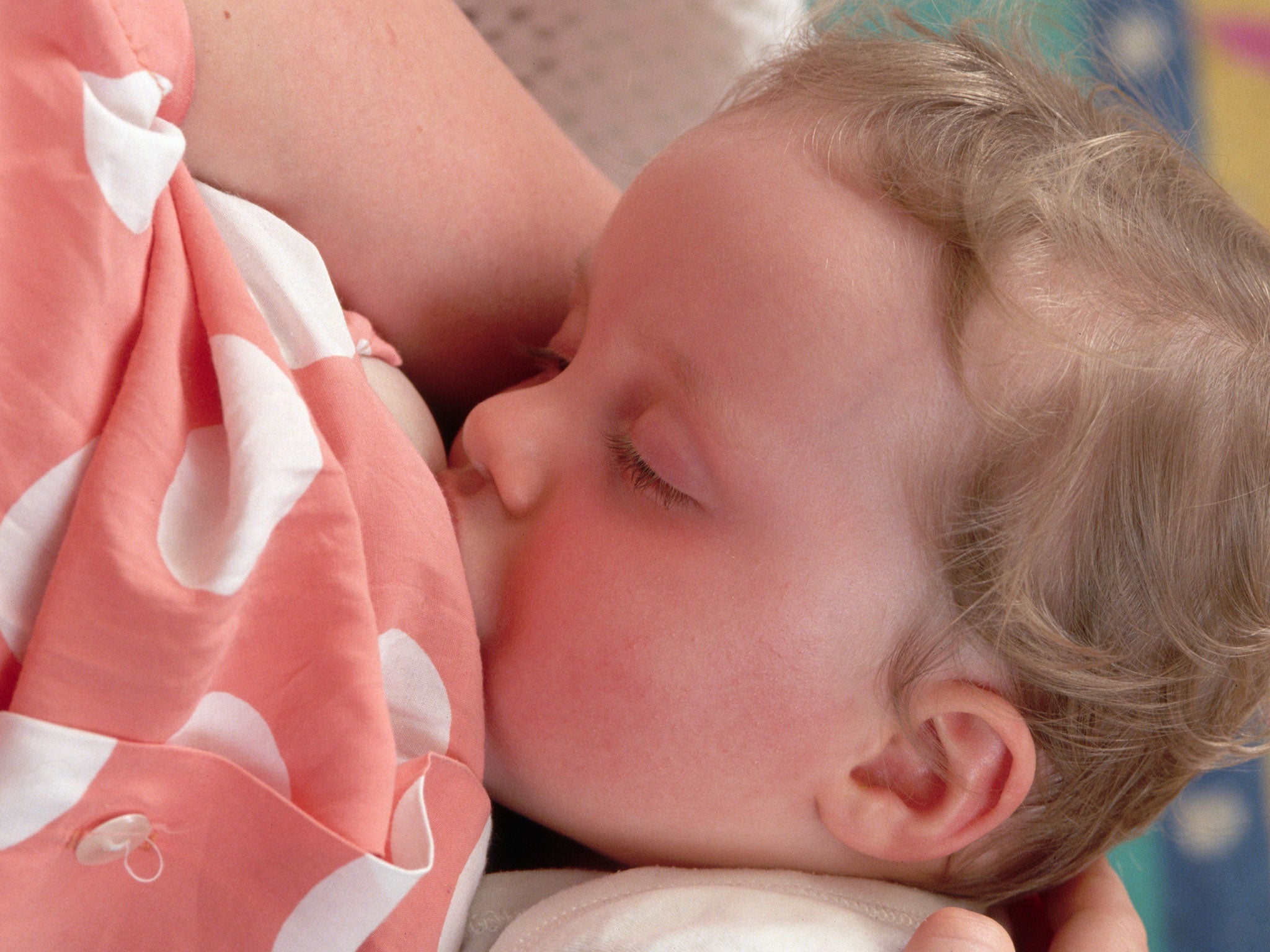800,000 children die every year due to lack of breast milk, experts say
Breastfeeding has been shown to help reduce child obesity, rates of diabetes and infections

Your support helps us to tell the story
From reproductive rights to climate change to Big Tech, The Independent is on the ground when the story is developing. Whether it's investigating the financials of Elon Musk's pro-Trump PAC or producing our latest documentary, 'The A Word', which shines a light on the American women fighting for reproductive rights, we know how important it is to parse out the facts from the messaging.
At such a critical moment in US history, we need reporters on the ground. Your donation allows us to keep sending journalists to speak to both sides of the story.
The Independent is trusted by Americans across the entire political spectrum. And unlike many other quality news outlets, we choose not to lock Americans out of our reporting and analysis with paywalls. We believe quality journalism should be available to everyone, paid for by those who can afford it.
Your support makes all the difference.Britain has one of the lowest rates of long-term breastfeeding in the world – and it is “costing children’s lives”, experts have warned.
A team of researchers from the World Health Organisation and Unicef estimated that 800,000 child deaths a year worldwide would be prevented if breast milk was universally used to feed babies, The Lancet reported.
They found that 0.5 per cent of British children are breastfed for a year, compared to 92 per cent in India, 44 per cent in New Zealand and 27 per cent in the US. About a third of babies in the UK are breastfed for six months, compared to about half of infants in the US and Germany.
Professor Russell Viner, of the Royal College of Paediatrics and Child Health, told The Daily Mail: “The benefits of breastfeeding have been widely publicised, yet it’s clear that efforts are still falling far too short and the grave reality is that this is costing children’s lives.”
Breastfeeding has been shown to help reduce child obesity, rates of diabetes and infections. It is believed to reduce the chance of sudden infant death by more than a third and also may increase the intelligence of the child.
Women who breastfeed also have a lower chance of getting breast cancer. The researchers estimated that 20,000 women’s lives could be saved worldwide by breastfeeding.
Dr Martin Ward-Platt, a consultant paediatrician at Newcastle’s Royal Victoria Infirmary, said: “We have to go back to the 1960s to see high rates of breastfeeding across the country.
“There was a huge cultural change after the Second World War, when it was thought to be modern, scientific and desirable to use formula feed instead.”
Professor Viv Bennett, chief nurse at Public Health England, told the Mail: “There is strong evidence which tells us that breastfeeding provides benefits for babies. We recognise however that not all mothers choose, or are able, to breastfeed and infant formula is the only alternative to breast milk for babies under 12 months old.”
Join our commenting forum
Join thought-provoking conversations, follow other Independent readers and see their replies
Comments